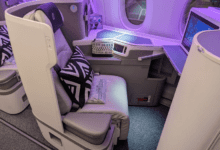Unlock the Perfect Business Space for Rent Near You: A Seamless Solution for Entrepreneurs
Welcome to our blog, where we embark on a journey to uncover the ideal business space for rent near you. As an entrepreneur, finding the perfect space to bring your dreams to life is crucial, and we’re here to guide you through this exciting process. No matter your industry or aspirations, we understand the significance of a well-suited workspace, and our goal is to help you unlock the ideal location that caters to your unique needs. So, let’s delve into the world of commercial real estate and discover the seamless solution that awaits you.
The Importance of Location: Exploring the Impact on Business Success
When it comes to renting a business space, location is a crucial factor that can significantly impact the success of your venture. The right location can attract your target audience, provide convenient access for customers, and contribute to your brand’s visibility. On the other hand, a poorly chosen location can hinder growth and limit your business’s potential.
Understanding your Target Market
Before diving into the search for a business space for rent near you, it’s essential to have a clear understanding of your target market. Who are your customers? Where do they live or work? What are their preferences and needs? By identifying your target market, you can narrow down your search to areas that align with your customer demographic.
Access and Convenience
Accessibility and convenience are paramount when it comes to choosing a business location. Consider factors such as proximity to major roads, public transportation, and parking availability. A location that is easily accessible not only makes it convenient for customers to visit your business but also ensures that employees and suppliers can reach you without hassle.
Competition and Foot Traffic
Analyze the competition in the area you are considering. While some competition can indicate a thriving market, too much competition might make it challenging to stand out. Additionally, assess the foot traffic in the vicinity. Are there popular shopping centers, business hubs, or tourist attractions nearby? Increased foot traffic can potentially translate into more exposure and potential customers.
Local Laws and Regulations
Before finalizing a location, familiarize yourself with local laws and regulations that may affect your business operations. Different areas may have specific zoning restrictions, licensing requirements, or health and safety regulations. Ensure that your business complies with all necessary legal obligations to avoid any future complications.
Brand Image and Visibility
The location of your business can significantly impact your brand’s image and visibility. Consider whether a particular area aligns with your brand’s values, target audience, and industry. A prestigious location can enhance your brand’s reputation, while an up-and-coming neighborhood might align with a more youthful and innovative image. Think about how the location can contribute to your overall brand strategy.
Cost Considerations
While finding the perfect location is essential, cost considerations cannot be overlooked. Evaluate the rental prices and associated expenses in different areas. A prime location might come with a higher price tag, but it could potentially generate more revenue due to increased foot traffic. Balance your budget with the potential benefits of a specific location.
By carefully evaluating these factors and conducting thorough research, you can ensure that your chosen business space location sets the stage for success. Remember, it’s not just a physical address; it’s an opportunity to connect with your target market, establish your brand, and thrive in a competitive business landscape.
Assessing Your Needs: Determining the Ideal Space for Your Business
Every business has unique requirements when it comes to space. Whether you need a small retail store, a spacious office, or a warehouse, understanding your needs is crucial. By carefully assessing your business’s needs, you can determine the ideal space that will support your operations and contribute to your success.
Consider Your Business Type and Industry
Start by considering the nature of your business and the industry you operate in. Different businesses have different spatial requirements. For example, a restaurant will have specific needs for a kitchen, dining area, and storage space, while a creative agency may prioritize open collaborative areas. Understanding the specific requirements of your industry will help you narrow down your search for the ideal business space.
Evaluate Current and Future Staffing Needs
Take into account your current staffing needs and consider any potential growth or expansion plans. Will you need additional employees in the near future? Will you require space for meetings, conference rooms, or employee amenities? By considering your staffing needs, you can ensure that the chosen space is adequate to accommodate your current and future workforce.
Assess Equipment and Storage Requirements
Depending on your business type, you may have specific equipment or storage requirements. A retail store will need adequate shelving and display areas, while a manufacturing company will require space for machinery and raw materials. Make a comprehensive list of the equipment and storage needs of your business to find a space that can accommodate them efficiently.
Think about Customer-Facing Areas
If your business involves interacting with customers or clients, consider the customer-facing areas you’ll require. This could include a reception area, waiting room, or customer service desk. These areas should be welcoming, comfortable, and aligned with your brand image. Ensuring a positive customer experience within your business space is crucial for building strong relationships and fostering loyalty.
Accessibility and Special Considerations
Think about any special considerations that may affect the accessibility of your space. If you serve customers with specific needs, such as wheelchair accessibility or accommodations for people with disabilities, ensure that the chosen space meets these requirements. Additionally, consider any unique needs related to your business operations, such as power supply, ventilation, or specialized infrastructure.
Flexibility and Scalability
While assessing your needs, it’s important to consider flexibility and scalability. Your business may evolve and grow over time, and you’ll want a space that can adapt to those changes. Look for a space that offers flexibility in terms of layout, lease terms, and potential for expansion. This will save you the hassle of relocating in the future as your business expands.
By carefully evaluating your business’s needs and considering these factors, you can determine the ideal space that will support your operations and provide a conducive environment for growth. Remember, finding the right business space is a crucial step towards achieving your entrepreneurial goals and setting your business up for long-term success.
Budgeting for Success: Finding Affordable Business Spaces for Rent
When it comes to renting a business space, budgeting is a critical aspect that deserves careful consideration. As an entrepreneur, finding an affordable space that meets your needs can significantly impact your financial stability and long-term success. In this section, we’ll explore practical tips and insights to help you find affordable business spaces for rent near you.
Define Your Budget and Expenses
Start by defining your budget and understanding your financial limitations. Consider all the expenses associated with renting a business space, including rent, utilities, maintenance costs, and any additional fees. By having a clear understanding of your budget, you can focus your search on spaces that align with your financial capabilities.
Research Rental Market Trends
Stay informed about current rental market trends in your area. Research the average rental prices for business spaces that match your requirements. Understanding the market will give you a realistic perspective on pricing and help you negotiate better terms when discussing leases with landlords or property managers.
Consider Alternative Options
Expanding your search beyond traditional commercial real estate can open up a world of affordable options. Consider shared workspaces, co-working spaces, or even subleasing opportunities. These alternative options can often provide cost savings while still offering the necessary facilities and amenities for your business.
Negotiate Lease Terms
Don’t be afraid to negotiate lease terms with landlords or property managers. Discussing options such as flexible payment schedules, rent reductions, or longer lease terms can help you secure a more affordable rental agreement. Remember, landlords may be open to negotiations, especially if it means having a reliable and long-term tenant.
Explore Up-and-Coming Neighborhoods
Expanding your search to up-and-coming neighborhoods can be a great way to find more affordable business spaces. These areas often offer lower rental prices compared to more established locations while still providing potential for growth and development. Keep an eye on emerging neighborhoods that align with your business goals.
Consider Shared Expenses
Collaborating with other businesses to share expenses can be a smart way to reduce costs. Look for opportunities to share facilities, equipment, or even office spaces with complementary businesses. This not only helps you save money but also fosters a sense of community and potential collaboration.
Look for Incentives or Special Deals
Keep an eye out for incentives or special deals offered by landlords or property management companies. They may offer rent discounts for the first few months or provide incentives such as free utilities or maintenance services. Stay proactive in your search and inquire about any available promotions that could help you save money.
Consider Long-Term Savings
While finding an affordable business space is important in the short term, it’s also crucial to consider long-term savings. A space that may have a higher upfront cost but offers energy-efficient features or lower maintenance expenses can result in significant savings over time. Evaluate the long-term benefits and potential cost savings associated with each space you consider.
By following these tips and being proactive in your search, you can find an affordable business space that fits within your budget without compromising on quality. Remember, finding the right balance between affordability and functionality is key to setting your business up for financial success.
Navigating the Rental Market: Understanding Lease Agreements and Terms
Entering into a lease agreement for a business space can be a complex process, but with the right knowledge, you can navigate the rental market with confidence. In this section, we’ll shed light on the key aspects of lease agreements, including terms, clauses, and legal considerations, to help you make informed decisions when it comes to renting your business space.
Understanding Lease Types
First, familiarize yourself with the different types of leases commonly used in the commercial real estate market. The most common types include gross leases, net leases, and modified gross leases. Each type has its own set of terms regarding rent payment, utilities, maintenance responsibilities, and more. Understanding these lease types will help you assess which one aligns best with your business needs.
Lease Duration and Renewal Options
The duration of a lease is an important consideration. Determine how long you anticipate needing the space and whether the lease terms align with your business goals. Additionally, explore any renewal options available in the lease agreement. Having the option to extend the lease at the end of the initial term can provide stability and save you from the hassle of relocating in the future.
Rent and Additional Expenses
Clearly understand the rental amount and any additional expenses associated with the lease. It’s essential to know if the rent includes utilities, maintenance fees, property taxes, or any other costs. Assess whether these additional expenses fit within your budget and negotiate accordingly to ensure transparency and avoid any unexpected financial burdens.
Security Deposits and Insurance
Many lease agreements require a security deposit before occupying the space. Understand the terms and conditions surrounding the security deposit, including how it will be held and under what circumstances it will be returned. Additionally, consider any insurance requirements outlined in the lease agreement, such as liability insurance or property insurance, to protect your business and its assets.
Use and Alterations of the Space
Review the lease agreement regarding the permitted use of the space and any restrictions on alterations or modifications. Ensure that the space meets your specific business needs and that you have the flexibility to make necessary changes to accommodate your operations. Seek clarification on any limitations or conditions related to alterations before signing the lease.
Termination and Subleasing
Examine the termination clause in the lease agreement, including the conditions under which either party can terminate the lease before the agreed-upon end date. Understand the notice period required and any penalties associated with early termination. Additionally, consider whether subleasing is allowed, as this can provide flexibility if your business needs change in the future.
Legal Considerations and Professional Advice
Lease agreements can involve complex legal language and provisions. It is advisable to seek professional advice from an attorney or real estate expert to ensure you fully understand the terms and implications of the lease agreement. They can review the contract, identify any potential issues, and provide guidance to protect your interests throughout the leasing process.
By understanding the key aspects of lease agreements and seeking professional advice when necessary, you can confidently navigate the rental market and make informed decisions that align with your business goals. Remember, a well-negotiated and clearly understood lease agreement is essential for a smooth and successful renting experience.
Designing Your Dream Workspace: Transforming a Rental into Your Own
Just because you’re renting a business space doesn’t mean you can’t make it your own. In this section, we’ll delve into creative ways to personalize your workspace, add your brand’s touch, and create an environment that inspires productivity and success. Discover how to make the most of your rental and create a space that reflects your business’s unique identity.
Identify Your Brand’s Aesthetic
Start by identifying your brand’s aesthetic and values. Consider your brand’s colors, logo, and overall theme. This will serve as a foundation for designing your workspace. Incorporate these elements into the interior design, from the color scheme to the choice of furniture and decor. Creating a cohesive visual identity will enhance your brand presence within the space.
Optimize the Layout and Flow
Assess the layout of your rental space and optimize it for maximum functionality. Consider the flow of movement within the space and ensure that it promotes efficiency and productivity. Arrange furniture and equipment strategically to create designated areas for different tasks or departments. A well-designed layout can enhance collaboration and communication among your team.
Add Personal Touches
Inject your personality and personal touches into the space to make it feel truly yours. Hang artwork or framed motivational quotes that inspire you and your team. Display items that reflect your hobbies or interests to create a more inviting and comfortable atmosphere. These personal touches will not only make the space feel unique but also foster a sense of ownership and pride.
Enhance Lighting and Ambiance
Lighting plays a crucial role in the overall ambiance of your workspace. Maximize natural light by keeping windows unobstructed and utilizing light-colored furniture and walls. Incorporate artificial lighting that complements the space and provides adequate illumination. Well-designed lighting can boost mood, productivity, and create a welcoming environment for both employees and clients.
Create Functional Work Areas
Designate specific areas within your workspace for different functions. Create comfortable and functional workstations for employees, ensuring they have the necessary tools and equipment to perform their tasks efficiently. Dedicate areas for meetings, brainstorming sessions, and relaxation. Each area should be designed with purpose and cater to the needs of your team and business operations.
Integrate Technology and Connectivity
Incorporate technology seamlessly into your workspace to enhance productivity and connectivity. Install reliable Wi-Fi throughout the space to ensure uninterrupted communication and access to online resources. Set up charging stations and organize cables to maintain a clean and clutter-free environment. Embrace technology to streamline processes and create a modern, tech-enabled workspace.
Emphasize Comfort and Ergonomics
Prioritize the comfort and well-being of your team by choosing ergonomic furniture and providing amenities that enhance their working experience. Invest in ergonomic chairs, adjustable desks, and proper lighting to promote good posture and reduce strain. Consider creating relaxation areas or quiet zones where employees can take breaks and recharge.
Maintain a Clean and Organized Space
A clean and organized workspace contributes to a positive work environment. Encourage employees to keep their work areas tidy and provide ample storage solutions to minimize clutter. Regularly clean and maintain the space to create a professional and welcoming atmosphere for both employees and visitors.
By following these design tips, you can transform your rental space into a vibrant and inspiring environment that reflects your brand’s identity. Remember, even though you may not own the space, you can still create a workspace that fosters creativity, productivity, and a sense of pride among your team.
Networking Opportunities: Leveraging a Strategic Location for Growth
Choosing a business space near other like-minded entrepreneurs and industry peers can have a significant impact on your networking opportunities. In this section, we’ll explore the benefits of being in a strategic location that fosters collaboration, partnerships, and growth. Uncover how the right neighborhood can fuel your success.
Access to a Thriving Business Community
When you locate your business in a strategic location, you gain access to a thriving business community. Surrounding yourself with other businesses can create opportunities for collaboration, knowledge sharing, and potential partnerships. By being part of a vibrant business ecosystem, you can tap into a network of like-minded individuals and learn from their experiences.
Industry-Specific Hubs and Clusters
Some locations are known for being industry-specific hubs or clusters. For example, a particular neighborhood may be home to numerous tech startups or creative agencies. By positioning your business in these hubs, you increase your chances of connecting with professionals in your industry. The proximity to industry-specific resources and talent can provide a competitive edge and open doors to new opportunities.
Networking Events and Meetups
Strategic locations often host networking events, industry conferences, and meetups. These events bring together professionals from various sectors and offer valuable networking opportunities. By being in close proximity to these events, you can easily attend and connect with potential clients, partners, or mentors. Stay informed about upcoming events and leverage them to expand your network.
Enhanced Visibility and Brand Exposure
Being located in a strategic area can increase your brand visibility and exposure. A bustling neighborhood with high foot traffic or a prominent location can attract attention from passersby, potential customers, and even media outlets. Your business becomes a visible presence, increasing the chances of attracting new clients and generating buzz around your brand.
Collaborative Spaces and Co-working Opportunities
Strategic locations often offer collaborative spaces and co-working opportunities. These spaces provide flexible work environments where professionals from different industries come together. By working in a co-working space, you can interact with individuals from diverse backgrounds, share ideas, and potentially collaborate on projects. These environments foster creativity, innovation, and valuable networking connections.
Access to Resources and Support
Strategic locations often have access to a wide range of resources and support services for businesses. This can include business development programs, incubators, accelerators, and access to specialized professional services. By positioning your business in such a location, you can tap into these resources, gain valuable insights, and receive support that can propel your growth.
Customer Convenience and Accessibility
Consider the convenience and accessibility for your customers when choosing a strategic location. Being in a central or easily accessible area can make it convenient for clients to visit your business. Proximity to public transportation, parking facilities, and other amenities can enhance the overall customer experience and attract a larger customer base.
Staying Ahead of Industry Trends
Being in a strategic location allows you to stay ahead of industry trends and developments. By immersing yourself in a neighborhood known for innovation or emerging technologies, you can gain insights into the latest industry advancements. This knowledge can help you adapt your business strategies, identify new opportunities, and stay competitive in a rapidly changing market.
By leveraging a strategic location, you position your business to thrive within a dynamic community, gain visibility, and access valuable networking opportunities. Choosing the right neighborhood can fuel your growth, inspire collaboration, and pave the way for long-term success.
Facilities and Amenities: Evaluating the Extras that Enhance Your Business
Beyond the physical space itself, the facilities and amenities offered by a business space can have a significant impact on your day-to-day operations. In this section, we’ll explore the importance of evaluating the extras that enhance your business and contribute to a productive and comfortable work environment.
Parking and Accessibility
Consider the availability of parking facilities and ease of accessibility for both employees and clients. Sufficient parking space can save time and eliminate the stress of finding parking. Additionally, assess whether the location offers convenient access to major roads, public transportation, or bike lanes to accommodate different commuting preferences.
Conference and Meeting Rooms
Having access to well-equipped conference and meeting rooms can greatly benefit your business. Evaluate the availability and quality of these spaces in the business facility. Consider the size, layout, and technological capabilities of these rooms to ensure they meet your requirements for client meetings, team collaborations, and presentations.
Common Areas and Lounges
Common areas and lounges can provide valuable spaces for informal meetings, relaxation, and collaboration. Assess if the facility offers well-designed common areas that foster interaction among employees and create opportunities for networking. These spaces can also serve as breakout areas for brainstorming sessions or a change of scenery from individual workstations.
Kitchen and Refreshment Facilities
A well-equipped kitchen or breakroom can enhance the overall employee experience. Evaluate the availability of kitchen facilities, including appliances, seating areas, and storage space. Additionally, consider whether the facility offers vending machines or access to nearby cafes or restaurants for convenience during breaks or for hosting client meetings.
High-Speed Internet and Technology Infrastructure
Reliable and high-speed internet access is essential for most businesses today. Assess the quality of the internet connectivity in the facility, as well as the availability of backup systems in case of outages. Additionally, consider the technology infrastructure, such as data ports, power outlets, and cable management, to ensure they meet your business’s technological needs.
Security Systems and Safety Measures
Security is of utmost importance in a business space. Evaluate the security systems and safety measures in place, such as surveillance cameras, access control systems, and alarm systems. Additionally, consider fire safety measures, emergency exits, and the availability of security personnel to ensure the safety and well-being of your employees and assets.
On-Site Maintenance and Support
Having on-site maintenance and support can save you time and effort in dealing with facility-related issues. Assess whether the facility offers maintenance services, such as cleaning, repairs, or landscaping, to keep the space well-maintained and professional-looking. Additionally, inquire about the availability of support staff, such as receptionists or administrative assistants, who can assist you and your team when needed.
Health and Wellness Facilities
Consider if the facility offers health and wellness amenities that promote employee well-being. This can include facilities such as fitness centers, yoga or meditation studios, or even access to nearby parks or walking trails. Prioritizing employee wellness can contribute to a positive work environment and improve productivity and morale.
Evaluating the facilities and amenities provided by a business space is crucial in creating a conducive work environment. By considering these extras, you can enhance employee satisfaction, improve operational efficiency, and create a space that supports your business’s unique needs.
Security and Safety: Ensuring a Secure Environment for Your Business
The safety and security of your business should never be compromised. When considering a business space for rent, it is essential to evaluate the security measures in place to protect your assets, employees, and customers. In this section, we’ll discuss the importance of choosing a business space that prioritizes security and provides a safe environment for your operations.
Surveillance Systems and Access Control
One of the fundamental security measures to consider is the presence of surveillance systems, including CCTV cameras, throughout the premises. Assess the coverage and quality of the surveillance system, ensuring that critical areas, such as entrances, exits, and parking lots, are properly monitored. Additionally, inquire about access control systems, such as key cards or biometric scanners, to restrict unauthorized entry.
Security Personnel and Alarm Systems
Find out if the business space has security personnel on-site or if there is a security service that monitors the premises. Having trained security personnel can deter potential threats and provide a sense of safety for your employees and customers. Additionally, inquire about the availability of alarm systems that can alert authorities in case of emergencies.
Fire Safety Measures
Fire safety is a critical aspect of any business space. Evaluate the presence of fire safety measures, including fire alarms, smoke detectors, fire extinguishers, and sprinkler systems. Additionally, inquire about the regular inspection and maintenance of these systems to ensure they are in proper working order and comply with safety regulations.
Emergency Preparedness and Evacuation Plans
Assess the establishment’s emergency preparedness and evacuation plans. Inquire about the existence of well-defined evacuation routes, clearly marked exits, and emergency lighting. Additionally, consider whether the business space conducts regular drills and trains employees on emergency procedures to ensure everyone is prepared in case of unforeseen events.
Data Security and Privacy
In today’s digital age, data security and privacy are of utmost importance. Ensure that the business space has measures in place to safeguard sensitive information. Inquire about secure network connections, encryption protocols, and data backup systems. Additionally, consider the physical security of server rooms or data centers if your business handles sensitive data.
Insurance Coverage and Liability
Review the insurance coverage offered by the business space and assess whether it aligns with your needs. Inquire about liability coverage, property insurance, and any additional insurance requirements outlined in the lease agreement. Having adequate insurance coverage provides peace of mind and protects your business from unforeseen events.
Accessibility for Individuals with Disabilities
Ensure that the business space is accessible and inclusive for individuals with disabilities. Evaluate if the premises comply with accessibility regulations, including ramps, elevators, and accessible restrooms. Providing a barrier-free environment not only ensures compliance with the law but also demonstrates your commitment to inclusivity and equal access for all.
Regular Maintenance and Safety Audits
Lastly, inquire about the regular maintenance and safety audits conducted in the business space. Regular inspections and maintenance ensure that safety features, such as fire extinguishers, emergency lighting, and security systems, are functioning correctly. Additionally, periodic safety audits can identify potential risks or areas for improvement to maintain a secure environment.
By prioritizing security and safety when selecting a business space, you can create a secure environment for your business operations. A safe workplace not only protects your assets and employees but also fosters trust and confidence among your customers. Take the necessary precautions to ensure that your business space is a secure haven for success.
Future Expansion: Planning for Growth and Flexibility in Your Rental Space
As an entrepreneur, you likely have future growth plans for your business. In this section, we’ll explore the importance of selecting a business space that allows for expansion and flexibility. By considering your long-term goals and evaluating the potential for growth in your rental space, you can set the foundation for a successful and scalable business.
Assessing Growth Potential
When considering a rental space, assess its potential for accommodating your future growth. Evaluate whether the space can be easily reconfigured or expanded to accommodate additional employees, equipment, or inventory. Consider the scalability of the space and how it aligns with your business’s projected growth trajectory.
Flexible Lease Terms
Examine the lease terms and conditions to ensure they provide flexibility for your business. Look for options such as shorter lease terms, renewal options, or the ability to sublease if needed. Flexibility in lease terms can allow you to adapt to changing business needs and adjust your space requirements as your business evolves.
Room for Additional Staff and Departments
Consider whether the rental space has room to accommodate additional staff and departments as your business expands. Assess the availability of extra workstations, meeting rooms, or collaborative areas. Having room for growth not only allows you to hire more employees but also fosters a sense of stability and longevity for your team.
Scalable Infrastructure and Technology
Evaluate the infrastructure and technology capabilities of the rental space. Ensure that the space can support your future technological needs, including internet bandwidth, electrical capacity, and cabling infrastructure. Having a scalable technology infrastructure minimizes potential disruptions and allows for seamless growth and adoption of new technologies.
Consider Future Equipment or Inventory Requirements
Anticipate your future equipment or inventory needs and evaluate whether the rental space can accommodate them. Consider factors such as storage space, loading docks, or specialized facilities required for your industry. Having the necessary space and resources readily available can streamline your operations as your business expands.
Collaboration and Communication Spaces
As your team grows, the need for collaboration and communication spaces becomes increasingly important. Ensure that the rental space provides areas for team meetings, brainstorming sessions, or project collaboration. Creating dedicated spaces for collaboration fosters teamwork, boosts creativity, and enhances productivity among your expanding team.
Proximity to Potential Partners or Clients
Consider the rental space’s proximity to potential partners or clients. If your business relies on building relationships with other businesses or serving a specific clientele, being in close proximity can enhance collaboration and facilitate business opportunities. Evaluate the potential for networking and partnerships when choosing a location.
Future-Proofing Your Space
Future-proofing your rental space involves considering long-term trends and industry developments. Assess the adaptability of the space to accommodate emerging technologies, changing consumer preferences, or industry shifts. By future-proofing your space, you position your business to stay ahead of the curve and remain competitive in a dynamic market.
By considering these factors and planning for growth and flexibility in your rental space, you set the stage for a scalable and successful business. Adaptability and foresight are key to ensuring that your space can evolve with your business, accommodating future expansion and supporting your long-term goals.
Making the Right Choice: Factors to Consider when Renting a Business Space
When it comes to renting a business space, making the right choice is crucial for the success of your venture. In this final section, we’ll summarize the key factors to consider when selecting a business space for rent near you. By keeping these factors in mind, you can make an informed decision that aligns with your business goals and sets you up for long-term success.
Location and Accessibility
Consider the location of the business space and its accessibility for both employees and customers. Assess proximity to major roads, public transportation, and amenities. A convenient location can attract more customers and provide ease of access for your team.
Size and Layout
Evaluate the size and layout of the space to ensure it can accommodate your business needs. Consider the number of employees, workstations, meeting rooms, and storage requirements. A well-designed layout can enhance productivity and collaboration among your team.
Budget and Affordability
Determine your budget and evaluate the affordability of the rental space. Consider not only the monthly rent but also additional expenses such as utilities, maintenance costs, and insurance. Striking a balance between your budget and the quality of the space is essential.
Lease Terms and Flexibility
Review the lease terms and conditions carefully. Consider the duration of the lease, renewal options, and any restrictions or clauses. Flexibility in lease terms allows you to adapt to changing business needs and ensures a harmonious relationship with the landlord.
Amenities and Facilities
Evaluate the amenities and facilities provided by the business space. Consider factors such as parking availability, conference rooms, kitchen facilities, and security measures. These extras can enhance the functionality and convenience of your workspace.
Future Growth Potential
Assess the potential for future growth in the rental space. Consider whether the space can accommodate your expanding team, additional equipment, or inventory. Planning for growth ensures that your business can scale without the need for frequent relocations.
Networking and Collaboration Opportunities
Explore the networking and collaboration opportunities available in the vicinity of the business space. Being in a location with a vibrant business community can open doors for partnerships, mentorship, and knowledge sharing. Consider the potential for networking events, industry clusters, or shared workspaces.
Security and Safety
Prioritize the security and safety of the business space. Evaluate the presence of surveillance systems, access control, fire safety measures, and emergency preparedness. A secure and safe environment protects your assets and promotes peace of mind among employees and customers.
Brand Image and Identity
Consider whether the business space aligns with your brand image and identity. Evaluate the aesthetics, ambiance, and overall feel of the space. A well-aligned space enhances your brand’s reputation and contributes to a positive customer experience.
Professional Advice and Due Diligence
Finally, seek professional advice and conduct due diligence before finalizing your decision. Consult with real estate experts, attorneys, or business mentors who can provide valuable insights and guidance throughout the process. Thorough research and expert advice mitigate risks and ensure a well-informed decision.
By considering these key factors when renting a business space, you can make a choice that supports your business goals and sets the stage for success. Remember, your business space plays a crucial role in shaping your work environment, fostering growth, and contributing to your overall business success.
Choosing the right business space for rent near you is a critical decision that can impact the success and growth of your venture. By considering factors such as location, budget, amenities, and future expansion potential, you can make an informed choice that aligns with your business goals. Whether it’s finding a strategic location for networking opportunities, ensuring a secure environment, or designing a workspace that reflects your brand, each aspect contributes to creating a conducive and thriving work environment. Remember to conduct thorough research, seek professional advice when needed, and prioritize the long-term sustainability of your business. With careful consideration and planning, you can unlock the perfect business space that propels your entrepreneurial journey to new heights.

I am a passionate and dynamic entrepreneur and the creative force behind “Bile Business,” a blog dedicated to exploring the ever-evolving world of business. With a keen eye for innovation and a relentless drive for success, John has established himself as a thought leader in the business realm.









